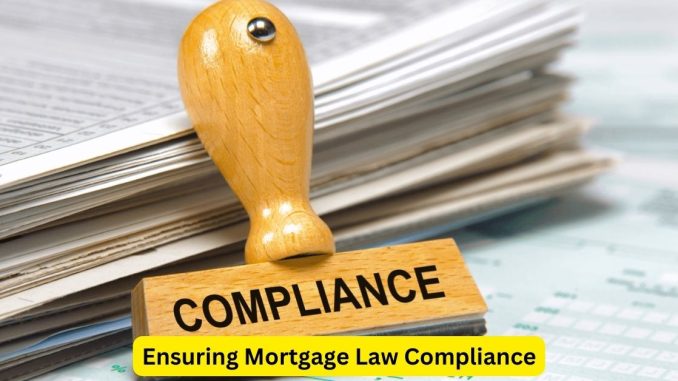
Navigating the intricate legal landscape of mortgage law compliance requires meticulous attention to detail and a nuanced understanding of evolving regulations. Attorneys in this field play a pivotal role in guiding lenders, borrowers, and stakeholders through the complex web of legal requirements.
First and foremost, attorneys ensure adherence to federal laws governing mortgage lending. The Truth in Lending Act (TILA), Real Estate Settlement Procedures Act (RESPA), Home Mortgage Disclosure Act (HMDA), and Equal Credit Opportunity Act (ECOA) are among the key statutes that govern various aspects of mortgage lending. Attorneys interpret and apply these laws to ensure compliance in all stages of the lending process.
Attorneys assist lenders in drafting mortgage documents that align with legal requirements. From loan agreements to disclosures, these legal professionals ensure that all documentation complies with federal, state, and local laws. Their scrutiny helps mitigate potential legal disputes arising from inaccuracies or omissions in the documents.
Moreover, attorneys oversee compliance with fair lending practices and anti-discrimination laws. They guide lenders to ensure that lending decisions are made based on creditworthiness and other legitimate criteria, rather than factors prohibited by law, such as race, gender, or religion. Their oversight helps prevent discriminatory practices and legal repercussions.
Attorneys also navigate the complexities of foreclosure laws and procedures. They ensure that lenders adhere to statutory foreclosure requirements, timelines, and notification procedures. Additionally, they assist borrowers facing foreclosure by advocating for their rights and exploring legal avenues to mitigate the impact of foreclosure proceedings.
Furthermore, legal professionals monitor regulatory updates and changes. Mortgage laws are subject to continuous evolution, necessitating attorneys to stay abreast of amendments and new regulations. They guide lenders and borrowers in adapting their practices to remain compliant with the latest legal standards.
In addition to federal laws, attorneys address compliance with state-specific regulations. Each state may have its own set of mortgage laws, adding layers of complexity. Attorneys provide tailored guidance to ensure compliance with these state laws, preventing legal complications stemming from regional variations.
Lastly, attorneys aid in implementing robust compliance management systems for mortgage lenders. They assist in developing internal controls, policies, and training programs to ensure that all staff members involved in mortgage lending understand and adhere to legal requirements.
In summary, attorneys serve as guardians of legality and compliance in the domain of mortgage law. Their expertise in federal and state regulations, document drafting, fair lending practices, foreclosure procedures, and compliance management is indispensable. Collaborating with legal professionals is essential for stakeholders to navigate the intricate maze of mortgage laws, ensuring adherence to regulations and minimizing legal risks in the lending landscape.
Leave a Reply